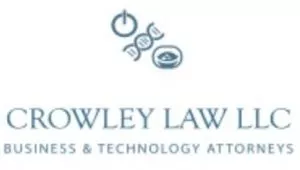- within Intellectual Property topic(s)
- in United States
- within Intellectual Property topic(s)
- in United States
- with readers working within the Automotive industries
- within Intellectual Property, Law Practice Management and Law Department Performance topic(s)
- with Finance and Tax Executives
Licensing technology from a university or research institution can be a powerful way for companies to access cutting-edge innovation. However, this process is fraught with potential pitfalls, especially concerning intellectual property protection. Before you dive in, there are critical steps you MUST take.
In this essential video, Phil Crowley, founder of Crowley Law LLC and a lawyer with extensive experience in technology transactions, highlights key considerations when licensing institutional technology. He stresses one overriding principle: GET IT IN WRITING.
Phil focuses on two major areas of concern:
Preventing Premature Public Disclosure & Protecting Patentability:
The Challenge: University researchers operate in a "publish
or perish" environment, where publishing their findings
quickly is crucial for tenure and career advancement.
The Critical Risk: If a researcher publicly discloses an invention
before a patent application is filed, that technology enters the
public domain. This means you can no longer obtain a patent for it,
which can be a major roadblock to commercialization and a
significant loss of potential value.
The Solution: You need a clear, written agreement with the
university (and an understanding with the researchers involved)
that prohibits public disclosure of the technology until a patent
application has been successfully filed.
Securing Your Rights to the Technology:
Beyond preventing disclosure, you need a formal written
agreement that grants your company a legal right to the technology,
such as an option to license it under defined terms. Don't rely
on verbal understandings.
Navigating the academic environment while protecting your
commercial interests requires careful planning and robust legal
agreements. Overlooking these steps can lead to the loss of
invaluable intellectual property rights.
If your company is considering licensing technology from a university or research institution, this advice is paramount.
The content of this article is intended to provide a general guide to the subject matter. Specialist advice should be sought about your specific circumstances.


